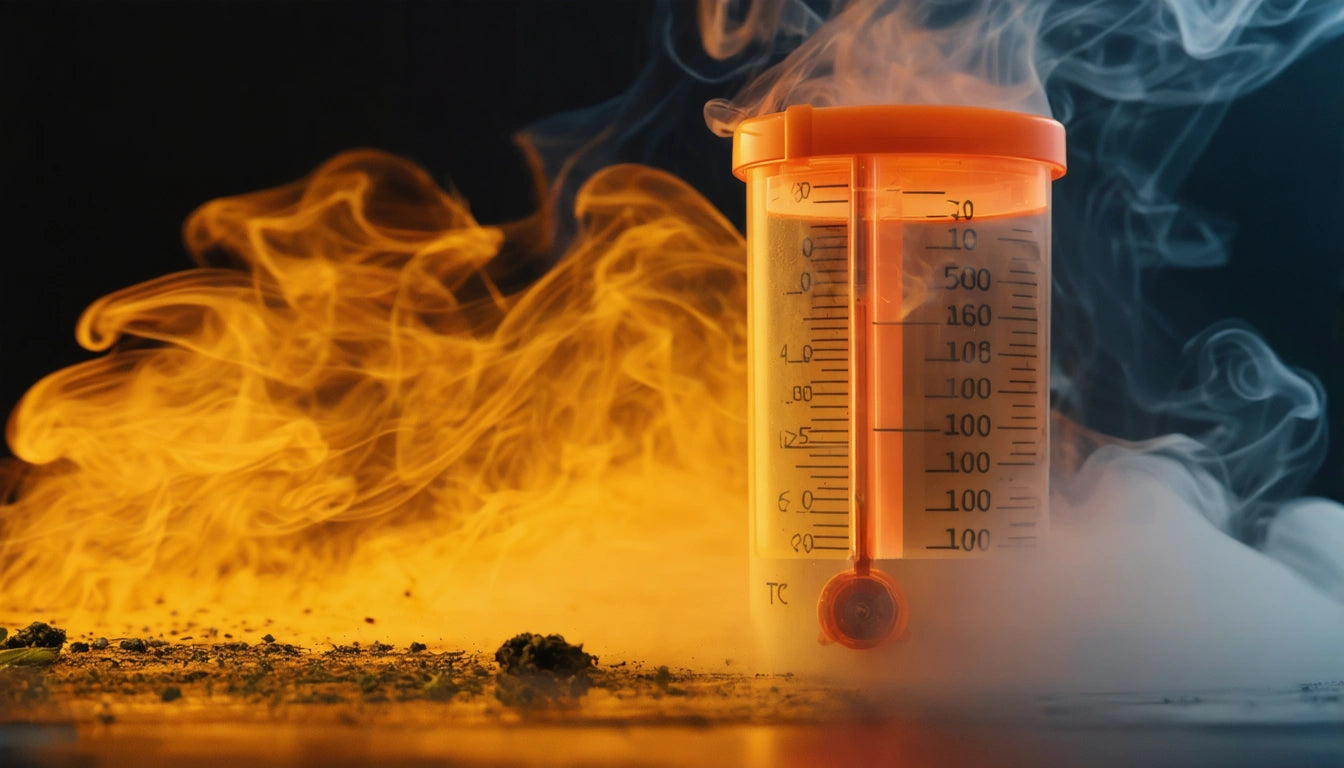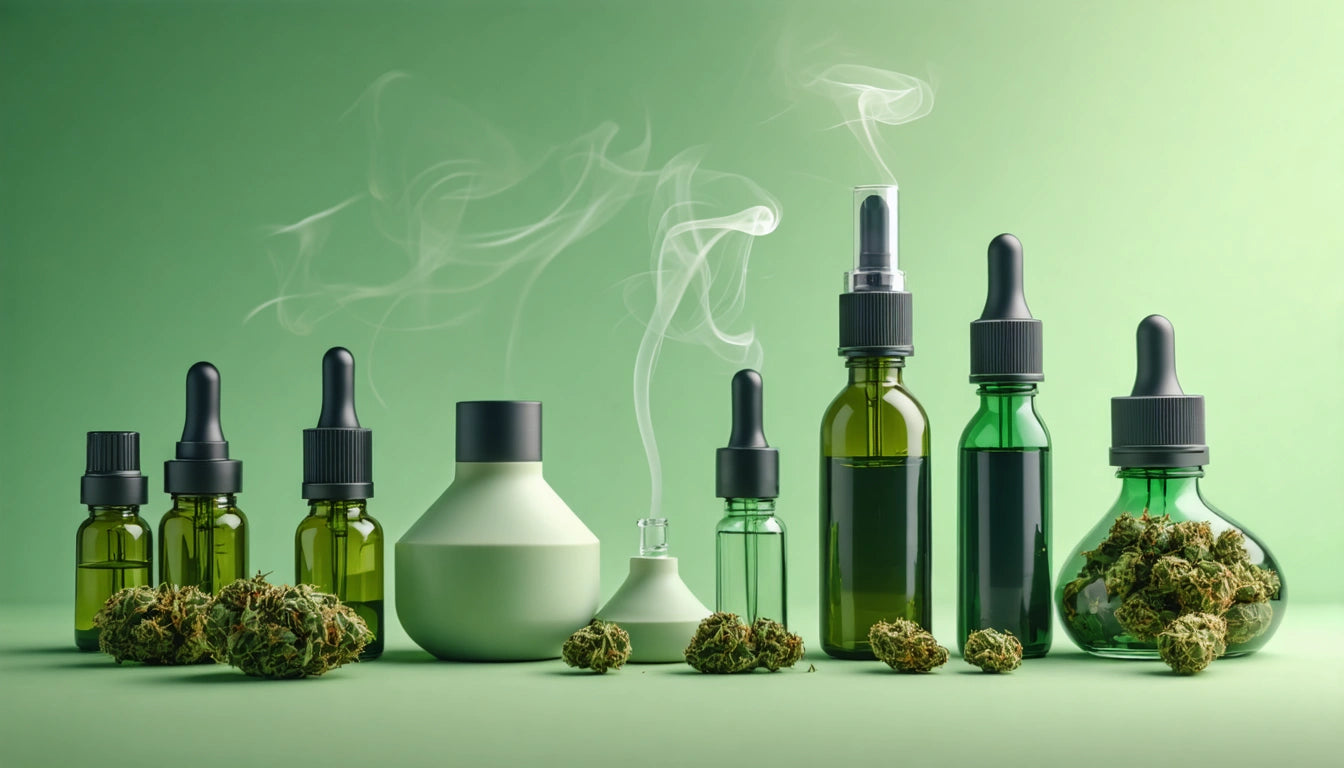Table of Contents
- THC Basics: The Science Behind the Compound
- What Temperature Does THC Activate: The Decarboxylation Process
- What Temp Does THC Vaporize: Optimal Ranges for Consumption
- What Temperature Does THC Degrade: Understanding the Upper Limits
- Does THCA Turn Into THC When Heated: The Conversion Process
- Practical Applications of THC Temperature Knowledge
Understanding THC: Activation, Degradation, and Vaporization Temperatures
Temperature plays a crucial role in how THC (tetrahydrocannabinol) behaves. Whether you're cooking with cannabis, vaping, or simply curious about the science, understanding what temperature does THC activate at, when it degrades, and how it vaporizes can help optimize your experience and product efficacy.
THC Basics: The Science Behind the Compound
Before diving into temperatures, it's important to understand what THC actually is. THC is the primary psychoactive compound in cannabis, responsible for the "high" sensation. However, in its raw plant form, THC exists primarily as THCA (tetrahydrocannabinolic acid), a non-psychoactive precursor.
As explained in our guide on THC types and terminology, the cannabis plant produces cannabinoids in their acidic forms, which must undergo a chemical transformation to become active.
What Temperature Does THC Activate: The Decarboxylation Process
The process of converting THCA to THC is called decarboxylation, which occurs when cannabis is exposed to heat. But at what temperature is THC activated?
THCA begins to convert to THC at approximately 220 °F (104 °C), though the process is slow at this temperature. For more efficient decarboxylation:
- 240-250 °F (115-121 °C) for 30-40 minutes is often considered optimal for decarboxylation
- Higher temperatures can speed up the process but risk degrading THC
- Lower temperatures require longer exposure time
This temperature range allows for the removal of the carboxyl group (COOH) from THCA without significant degradation of the resulting THC, as detailed in our article about differences between THC, THCA, and THCB.
What Temp Does THC Vaporize: Optimal Ranges for Consumption
For those wondering what temp does THC vaporize at, the answer involves a range rather than a single point:
- THC begins to vaporize at approximately 315 °F (157 °C)
- Peak vaporization occurs around 330-370 °F (166-188 °C)
- Above 390 °F (199 °C), other cannabinoids and terpenes also vaporize in greater quantities
This is why many vaporizers offer temperature control, allowing users to target specific compounds. Lower temperatures typically produce milder effects with more flavor, while higher temperatures can produce stronger effects but may introduce more irritants.
When storing cannabis products, proper containers with secure, airtight jar caps help prevent premature degradation of THC and preserve potency by protecting against temperature fluctuations, light exposure, and oxygen.
Highlight: THC activates at 220-250 °F through decarboxylation, vaporizes optimally at 330-370 °F, and begins to degrade at temperatures above 392 °F, with complete combustion occurring around 450 °F.
What Temperature Does THC Degrade: Understanding the Upper Limits
Just as important as activation is understanding what temperature does THC burn or degrade at:
- THC begins to degrade at approximately 392 °F (200 °C)
- Significant degradation occurs above 428 °F (220 °C)
- Complete combustion (burning) happens around 450-550 °F (232-288 °C)
When cannabis burns rather than vaporizes, many of the beneficial compounds are destroyed, and harmful byproducts can be created. This is why vaporization is often considered a more efficient consumption method than smoking, as discussed in our resource on THC effects and benefits.
Does THCA Turn Into THC When Heated: The Conversion Process
The question "does THC A turn into THC when heated" has a straightforward answer: yes. This conversion is the decarboxylation process mentioned earlier.
When THCA is heated:
- The molecule loses its carboxyl group (COOH)
- This transforms it into THC, which can interact with the body's endocannabinoid receptors
- The conversion is not 100% efficient; some THCA may remain unconverted
The rate and efficiency of this conversion depend on several factors, including temperature, time, and the physical state of the cannabis material. Our article on THC and THCA differences and conversions provides more detailed information on this process.
Practical Applications of THC Temperature Knowledge
Understanding the temperature dynamics of THC has several practical applications:
Cooking with Cannabis
When infusing oils or butter, maintaining temperatures between 240-250 °F (115-121 °C) for 30-40 minutes achieves optimal decarboxylation without significant degradation. Going beyond these temperatures can result in THC loss and potentially unpleasant flavors.
Vaporization Settings
Different temperature settings on vaporizers can target specific effects:
- 315-330 °F (157-166 °C): Light effects, flavorful experience
- 330-370 °F (166-188 °C): Balanced effects and flavor
- 370-430 °F (188-221 °C): Stronger effects, less flavor preservation
Storage Considerations
To prevent THC degradation during storage:
- Keep cannabis products below 70 °F (21 °C)
- Avoid temperature fluctuations
- Protect from light and air exposure
By applying this knowledge of what temperature THC activates, vaporizes, and degrades at, consumers and producers can better preserve potency, enhance effects, and create more consistent experiences with cannabis products.











Leave a comment
All comments are moderated before being published.
This site is protected by hCaptcha and the hCaptcha Privacy Policy and Terms of Service apply.